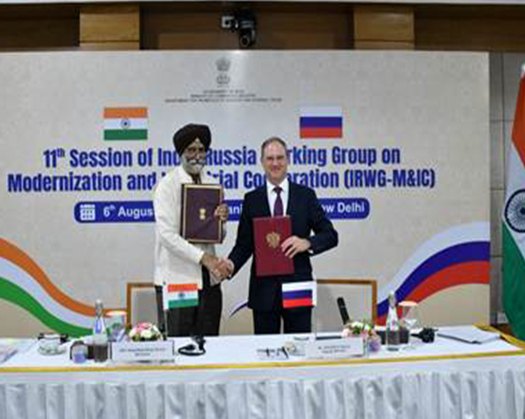Brussels: "We prefer not to react, but if I may echo my three-year-old son: They initiated it." This remark by Olof Gill, a spokesperson for the EU Trade Commissioner, encapsulates the sentiment of the 27-nation bloc regarding Donald Trump's decision to impose tariffs on European imports.
On Wednesday, April 9, prior to Trump's decision to suspend the tariffs for 90 days and reduce most to a minimum of 10%, EU diplomats reached a consensus on their response, unveiling their own tariffs exceeding €20 billion ($22 billion) on US exports.
Describing the US tariffs as "unjustified and harmful, inflicting economic damage on both sides," the EU Commission stated that it prefers to pursue negotiated solutions that are "balanced and mutually beneficial."
As Europe contemplates the extent of its retaliation, the Commission outlined that the countertariffs will be implemented in three phases.
The first phase, affecting €3.9 billion in trade, will take effect next week, followed by an additional €13.5 billion in mid-May, and a final tranche of €3.5 billion in December.
EU diplomats informed DW that the initial set of countertariffs, which could reach up to 25%, will target US steel and aluminum, along with various food items such as poultry, nuts, and soybeans.
With a clear intention to impact the core regions of Trump's Republican base, the tariff list also features a variety of products, from motorcycles to jeans, aimed at making these goods pricier and less appealing to European consumers.
"The majority of the list comprises items that consumers and businesses can easily substitute," stated Sweden's Trade Minister Benjamin Dousa during a press briefing in Brussels.
The initial set of tariffs is set to take effect next week, responding to the steel and aluminum tariffs imposed by the U.S. last month, which preceded Trump's larger initiative regarding reciprocal tariffs.
Tariffs on soybeans and almonds, which will significantly impact U.S. producers, are scheduled to be implemented later this year. Although diplomats have indicated that the postponement is more about legal considerations than political ones, it provides the European Union with some time to negotiate with Washington in an effort to prevent a full-scale trade conflict.
EU Trade Commissioner Maros Sefcovic has been actively engaged in discussions with Washington for weeks, attempting to reach an agreement to prevent the imposition of tariffs. After Brussels publicly proposed eliminating all tariffs on cars and industrial products earlier this week, Trump promptly rejected the offer.
On Wednesday, the EU Commission reiterated that the countermeasures could be "suspended at any time," similar to how Trump's tariffs were quickly retracted.
Cinzia Alcidi, an analyst at the Centre for European Policy Studies, believes that the "crude" method used to calculate U.S. tariffs indicates that the Trump administration lacks genuine interest in meaningful negotiations.
Alcidi suggests that only increased domestic pressure in the U.S. will encourage the president to adopt a more conciliatory approach. She noted, "Tariffs, essentially a tax on domestic consumers, will result in higher prices. Companies, particularly those dependent on imported parts, will face challenges." She added, "If inflation rises and public discontent increases, Trump's approval ratings may decline, leading to heightened concerns within Congress."
However, Niclas Poitiers points out that much of the impact will also be felt in Europe, as both businesses and voters are becoming increasingly "nervous."
A research fellow from the Brussels-based think tank Bruegel stated to DW, "It is essential to find a balance between the need for a strong response and the desire to demonstrate a problem-solving approach without escalating tensions."
As Europe considers long-term retaliation strategies, US service exports, particularly from major tech companies and consulting firms, may come under the EU's scrutiny.
The EU's Anti-Coercion Instrument (ACI), often referred to as Brussels' "nuclear option" in the context of trade disputes, "enables [the EU] to take actions beyond what a typical trade war would permit," according to Poitiers.
Established in 2023 in response to China's ban on Lithuanian imports due to its support for Taiwan, the ACI could empower the EU to impose restrictions on US banks, limit revenue access for streaming services like Netflix, or even revoke US patents.
However, a diplomat from the EU informed DW that there is currently "no desire to activate that option," emphasizing that discussions about targeting technology remain "speculative."










